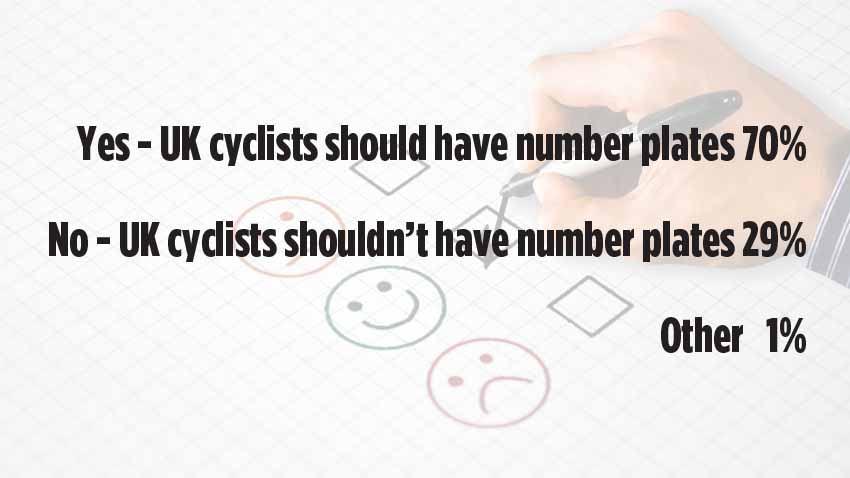Over the last few years, there have been several calls for cyclists to be subjected to similar bureaucracy as motorists. There have been demands for them to pay road tax and even calls for cycles to bear registration plates, like cars, vans, lorries etc. The fuss usually generates a few headlines and then seems to die down. After that, we all forget about it until it happens again.
U-turn
In 2022, the Tories' transport secretary at the time, Grant Shapps, expressed some enthusiasm for the idea of applying speed limits to bicycles and having some means of identifying them for the purposes of enforcement. He later backpedalled saying that he was not attracted to the idea of piling red tape onto cyclists, saying that would be a step too far.
Europe
In early June 2023, Italy's right-wing deputy prime minister and Minister of Infrastructure and Transport, Matteo Salvini, announced plans to make cyclists wear helmets, fit licence plates and indicators to their bikes and have insurance. Mr Salvini said that he intended to ensure “more rules, more education, and more safety on Italian roads”. Unsurprisingly, the proposals have attracted substantial criticism and opposition. Mr Salvini's proposed changes to the law, if successfully introduced, would be the first time a European country has forced such a package of legal requirements on its cyclists. Critics point out that the measures are likely to deter people from cycling at a time when increasing numbers have been adopting it as a more environmentally sustainable form of transport.
Plates for bikes poll

Soon after the Italian announcement, a poll on The Mirror's website asked readers whether they supported the idea of number plates for bikes. A hefty 70% of respondents voted with a firm yes, while 29% didn't like the idea.
A 2017 poll by Halfords showed 59% in favour of plates for bikes.
E-bikes the most likely candidates for plates?
The introduction of pay-as-you-ride e-bike schemes in many parts of the UK has sparked a new variation on the plates-for-bikes theme. Conservative MP's Iain Stewart and Greg Smith, both members of the Transport Select Committee, have told journalists that they favour the introduction of more scrutiny and regulation of e-bikes on UK roads.
Stewart said that there was a case for looking at insurance arrangements for the electric bikes. He widened the scope of speculation somewhat when he also mentioned e-scooters and autonomous and semi-autonomous cars. He made the point that the rules need to keep up with developing transport technology. Smith echoed his colleague's opinions, also specifically mentioning road safety issues. He also said that road users of all these vehicles should be treated equally and have the same responsibilities regarding insurance and tax.
Clearly, any move to place tax and insurance requirements on e-bikes will require registration and, most likely, number plates of some kind, to enable identification and enforcement.
That safety aspect
The politicians aren't alone in calling for measures to police e-bike and e-scooter usage. Following the deaths of several young riders and at least one pedestrian in incidents involving e-bikes, Motor Cycle Industry Association chief executive Tony Campbell said “We are in favour of reviewing regulation as it is clear it is outdated.” Mr Campbell also said that rules should prevent e-bikes being modified to go faster.
As well as the speed aspect, safety groups have highlighted the fact that e-bikes are heavier than ordinary bicycles and likely to cause more serious injury in some cases.
Love them or hate them?
Battery powered bikes and scooters have certainly had a mixed reception in general. Paris, which pioneered e-scooter schemes in 2018 has since had a change of heart. In a vote, 90% of citizens voted to ban e-scooters from the French capital's streets.
Many countries are still in the adoption phase so it is unclear how many will experience similar reversals in the future. In the UK, e-bikes are very popular with young people but many pedestrians have complained about the bikes being badly parked when people have finished their journeys. By obstructing pavements, they may pose a different sort of safety hazard.
What do you think
Do you love e-bikes or despise them? Do you think e-bikes, e-scooters or conventional bicycles should have to display number plates? Let us know via our social media channels.
